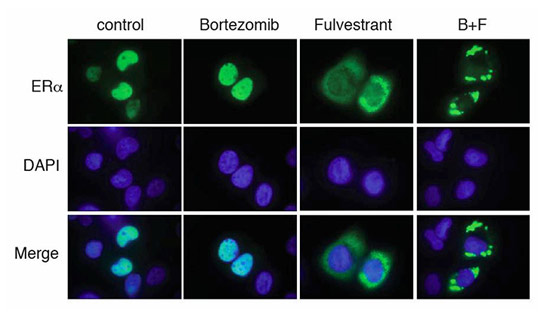
Anew combinationof cancer medications postponed disease advancement in individuals with hormone-receptor-positive metastatic breast cancer.Credit: Yale
Research presented at the 2014 San Antonio Breast Cancer Symposium reveals that a new drug combination for advanced breast cancer delays disease progression.
A new combination of cancer drugs delayed disease progression for patients with hormone-receptor-positive metastatic breast cancer, according to a multi-center phase II trial. The findings of the randomized study (S6-03) were presented at the 2014 San Antonio Breast Cancer Symposium, held December 6-9, by Dr. Kerin Adelson, assistant professor of medical oncology at Yale Cancer Center and chief quality officer at Smilow Cancer Hospital at Yale-New Haven.
The trial enrolled 118 post-menopausal women with metastatic hormone-receptor-positive breast cancer whose cancer continued to progress after being treated with an aromatase inhibitor. The study, based on work done by Doris Germain of Mt. Sinai Hospital, found that the combination of the drugs bortezomib and fulvestrant — versus fulvestrant alone — doubled the rate of survival at 12 months and reduced the chance of cancer progression overall.
Bortezomib, used most commonly in treating multiple myeloma, is a proteasome inhibitor that prevents cancer cells from clearing toxic material. Fulvestrant causes clumping of the estrogen-receptor protein. When bortezomib blocks the ability of the cell to clear these protein clumps, they grow larger and become toxic to the cancer cells. This, in turn, amplifies the effectiveness of fulvestrant, a drug commonly used in this subset of patients.
The drug combination doubled the number of patients whose cancer had not progressed after one year from 14% to 28%, according to Adelson.
“This provides the foundation for future studies combining selective estrogen-receptor destroyers with proteasome inhibitors,” Adelson said. “Because the study showed a statistically significant benefit among patients whose disease progressed on an aromatase inhibitor, a larger phase III study comparing this combination to other approved therapies used after initial therapies fail, like exemestane and everolimus, should be done.”
The study results also suggest that the drug combination can delay or overcome resistance to fulvestrant. The combination should be studied in other populations of patients, Adelson added, including those who are newly diagnosed with metastatic breast cancer and those who have already progressed on fulvestrant.
Adelson was the study’s principal investigator for the New York Cancer Consortium. Study support included funding from National Cancer Institute/CTEP; and Millenium, the Takeda Oncology Company.









Be the first to comment on "New Drug Combination Delays Breast Cancer Progression"